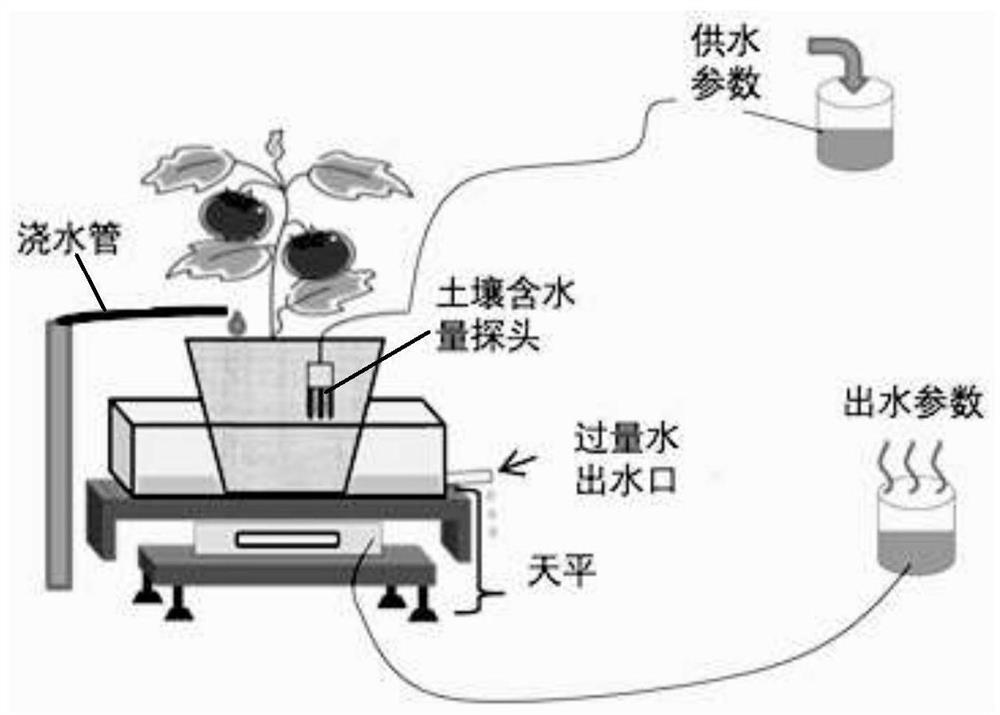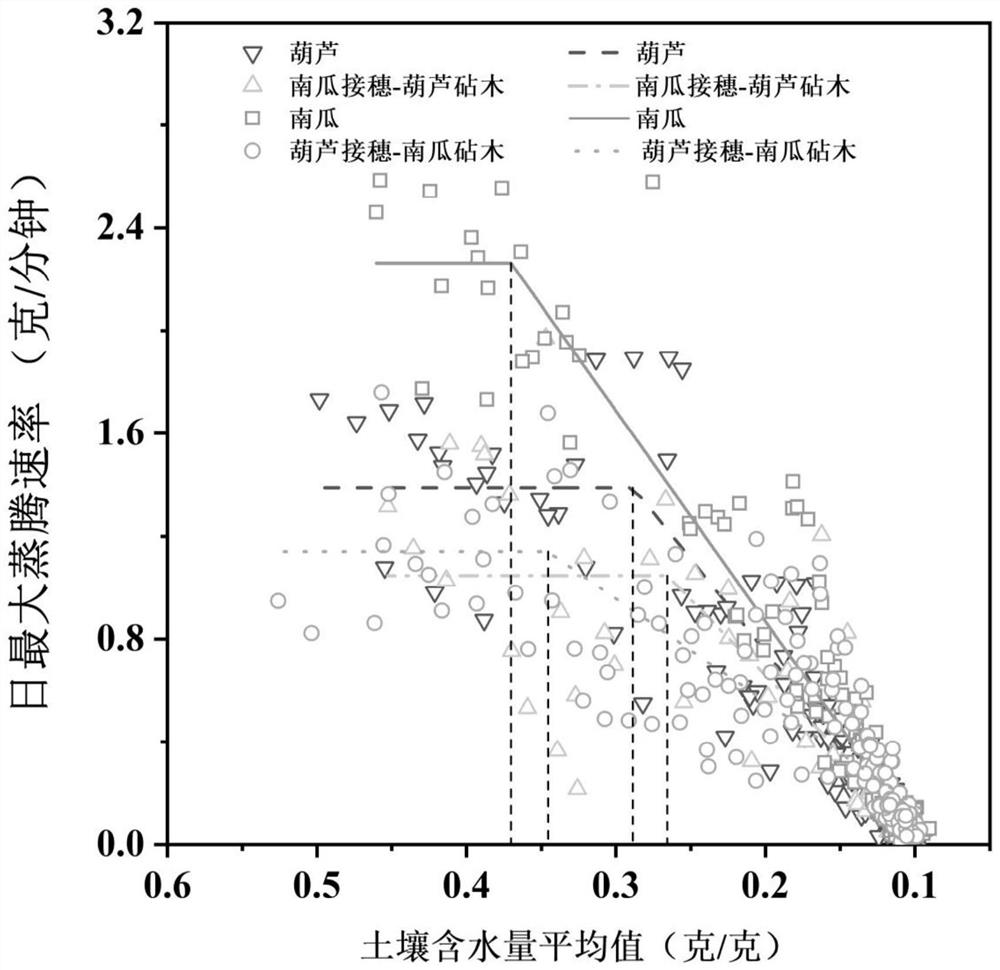A method for quantitative analysis of the relationship between plant stomatal closure and root genotype using reciprocal grafts
A stomatal closure and quantitative analysis technology, applied in plant biology, using mutual grafts to quantitatively analyze the relationship between plant stomatal closure and root genotype, can solve complex regulatory strategies and other issues
- Summary
- Abstract
- Description
- Claims
- Application Information
AI Technical Summary
Problems solved by technology
Method used
Image
Examples
Embodiment Construction
[0032] In order to solve the problem that the existing technology cannot quantitatively explain whether the sensitivity of plant stomata to soil drought response is completely determined by the root genotype, the present invention proposes a method for quantitatively analyzing the relationship between plant stomata closure and root genotype by using mutual grafts. Analyze the regression curve of the transpiration rate as the soil moisture decreases to quantitatively explain the critical value of soil moisture that causes the closure of plant stomata, and then quantitatively illustrate the effect of plant stomata on soil by comparing the critical value of soil moisture in the two plants and their grafted complexes. Whether the drought response is entirely dependent on root genotype.
[0033] Specifically, the method for quantitatively analyzing plant stomatal closure and root genotype relationship using mutual grafts of the present invention comprises the following steps:
[00...
PUM
 Login to View More
Login to View More Abstract
Description
Claims
Application Information
 Login to View More
Login to View More - R&D
- Intellectual Property
- Life Sciences
- Materials
- Tech Scout
- Unparalleled Data Quality
- Higher Quality Content
- 60% Fewer Hallucinations
Browse by: Latest US Patents, China's latest patents, Technical Efficacy Thesaurus, Application Domain, Technology Topic, Popular Technical Reports.
© 2025 PatSnap. All rights reserved.Legal|Privacy policy|Modern Slavery Act Transparency Statement|Sitemap|About US| Contact US: help@patsnap.com



